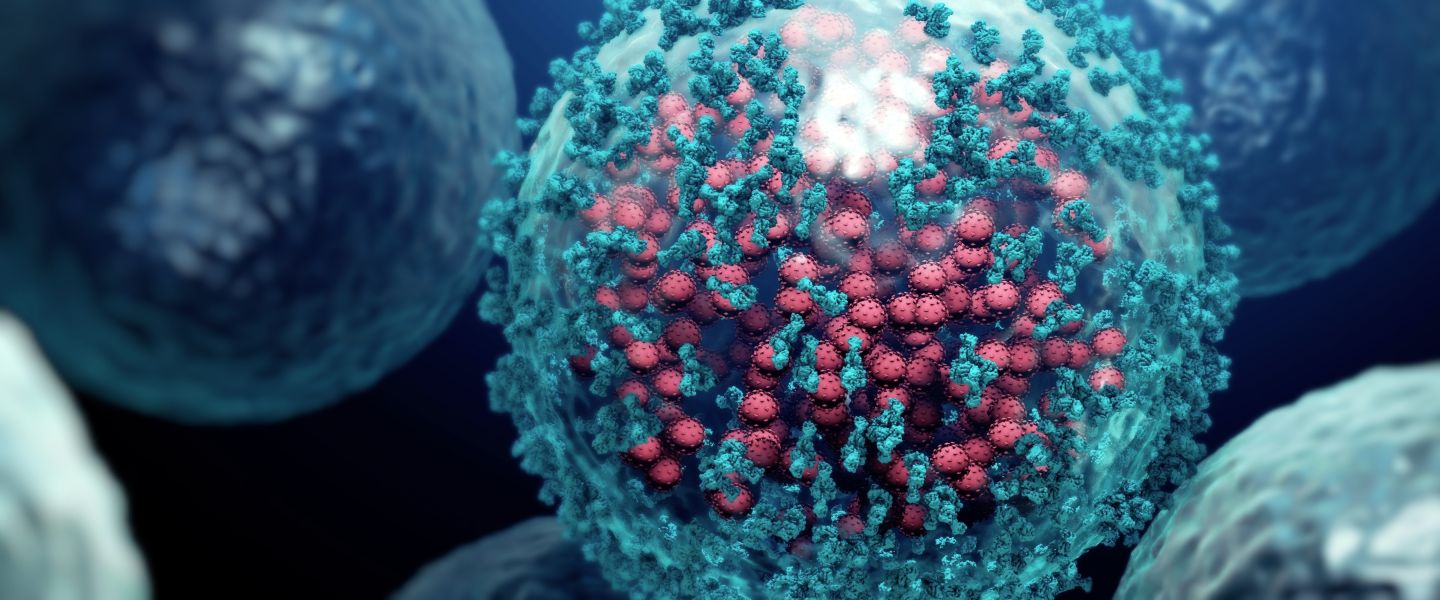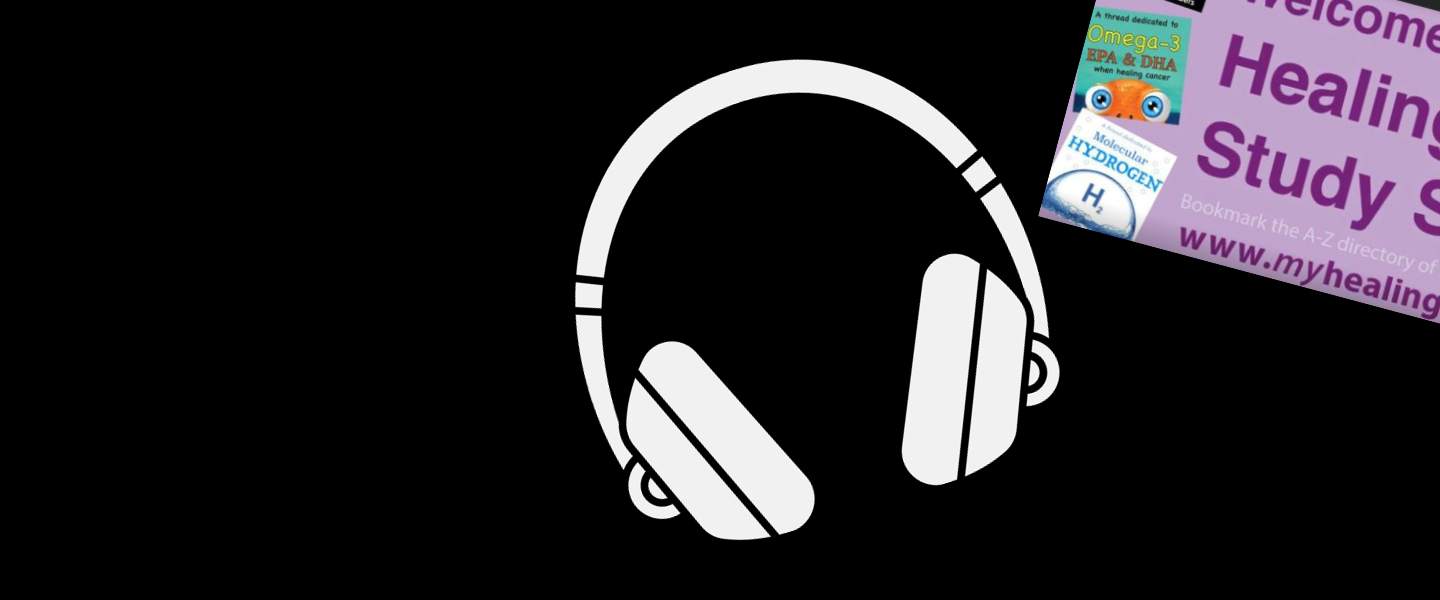SHARING / REPOSTING GUIDELINES: We're very happy to have posts/articles shared as direct links.
However, if you are replicating and re-posting information from this website or our posts, Abbey requests that you:
A) Only ever share articles in part (not in full). (eg. You can lift a paragraph as a way of introducing your readers to the topic) B) Be sure to always provide a direct link/URL back to the full original article here on the MyHealingCommunity.com website. Thanks in advance for your co-operation when sharing and re-posting any and all information that appears on this website.
An Opportunity to Contribute to Cancer Research
Julie cannot be certain exactly what made the difference in her outcomes. After the first of two recurrences from a rare sarcoma, she cast a wide net, believing she needed more than the standard of care of surgery and chemo. As a mother of four, she was determined to leave no stone unturned. Her approach included high-dose infusions, biological dentistry, immune stimulation, mistletoe fever therapy, personalized vaccines, nutrient analysis, and an extraordinary commitment to reading, learning, sharing, and advocating.
“I wasn’t willing to just be average and follow the guidelines with their average outcomes,” says Julie.
Now, she hopes to better understand which of these interventions may have played a role in her progress—and how her experience might help others. “I love the idea of someone analyzing my data and finding the nuggets of what I did and why it works,” she adds.
To support this effort, Julie created an account with the Morningside Registry, consenting to share information and uploading her medical records, full treatment history, and genomic testing results.
Many patients like Julie have asked their oncologists, “Would you like to know what I did?” Too often the answer is silence. It’s time to start telling our stories—because the more voices we gather, the stronger the signal becomes. Let machine learning help us find the patterns, the outliers, the quiet innovations—and begin to shape a smarter, more responsive future in cancer care, one insight at a time.
Stories like Julie’s raise an important question: if patients are already conducting real world experiments with their health, why isn’t the medical community studying what works? The answer lies in how we've traditionally approached cancer research.

Patient-Powered Research: A New Era of Integrative Cancer Care
In today’s complex medical landscape, patients are doing more than just following orders—they’re reading, experimenting, and building personalized plans that reflect their values, bodies, and lives. But despite how common this self-advocacy has become, traditional research and clinical trials rarely capture these full, nuanced stories. The result? A vast amount of potentially life-changing data remains invisible.
That’s why a one-of-a-kind initiative is stepping in to change the conversation.
The Morningside Center at Emory, a nonprofit focused on affordable and overlooked cancer treatments, has partnered with xCures, a technology company specializing in patient-driven cancer platforms, to launch a much-needed project: a national patient-powered registry that collects real-world data from individuals managing cancer through a mix of standard and integrative treatments. Many of these approaches are low-cost, accessible, and deeply personal—yet they often go unstudied in conventional trials.
For example, Morningside is working to highlight how something as simple as the timing of treatment can dramatically influence outcomes. A recent randomized phase III trial in patients with advanced non-small cell lung cancer found that administering immunochemotherapy before 3:00 p.m. nearly doubled progression-free survival compared to treatment given later in the day. This low-cost adjustment—just shifting appointment times—could profoundly enhance patient outcomes by aligning treatment with circadian rhythms.
Another area of focus is magnesium—a common, inexpensive mineral often overlooked in standard care. Across multiple cancer types, researchers found that patients with optimal magnesium levels (≥0.79 mmol/L) responded better to immunotherapy and had significantly longer progression-free and overall survival. In lung, esophageal, and Hodgkin lymphoma cases, higher magnesium levels consistently predicted improved treatment responses, making routine monitoring and correction a simple but potentially life-saving intervention.
Beyond the Headlines: Research That Reflects Real Lives
The Morningside-xCures registry aims to change that by enrolling 1,000+ people who are using integrative, non-standard, or complementary methods to manage their cancer. The collected data—ranging from lab results and medication lists to personal narratives—will be analyzed to identify patterns: what seems to help, what doesn't, and what’s worth investigating further.
This registry is not just another study. It’s a radical rethinking of who drives medical discovery. It asks a simple yet powerful question: What if patients were not only subjects of research, but its authors?
Crucially, this initiative isn’t driven by profit. It’s not about selling products or promoting any specific therapy. It’s about learning from each other in a rigorous, secure, and compassionate way.
How the Registry Works
Participation is simple, free, and designed with patients in mind. After creating an account, participants consent to securely share their medical records through a Health Information Exchange system—without needing their physician to be involved. They can also choose to upload supplemental documents such as lab results, supplement lists, or medication histories. Most importantly, they are encouraged to describe any integrative or alternative practices they are using, no matter how unconventional.
We know from our lived experiences that patients do not always have the mental energy to take on one more task. As a Caregiver (Loved One) you can help set up the registry, have your patient loved one sign the consent, and help them upload or link their data. Often, it is you who is tracking the details of what’s working—or what’s not.
The entire process is voluntary, confidential, and non-invasive. Participants can update or withdraw their data at any time.
Protecting Your Information
Reclaiming the Power of the Patient Voice
What makes this initiative fresh and new is not just the technology or the collaboration—it’s the mindset. It recognizes that people living with cancer are already conducting their own experiments every day. They are weighing risks, adjusting regimens, managing side effects, and finding ways to hold on to both dignity and hope.
By collecting and studying these real-world decisions, the Morningside Center and xCures hope to empower patients—not just with treatment, but with knowledge.
A Call to Patients and Caregivers
If you are someone who has chosen to chart your own course through cancer care—whether by necessity, curiosity, or conviction—our shared stories can help shape the future. This is research by patients, for patients. It’s built on the belief that every experience holds insight.
In the era of patient-powered research, your voice is data. And it may just help save a life.
To learn more and to participate: xCures Observational Study - Accelerate Cancer Research | Emory University | Atlanta GA
Update, 22nd June 2025: Improvements to the registry process, designed to make participation even easier, will be ready by the beginning of July. Registration is now open, or you can check back once the new changes are live.
DISCLAIMER: Any and all information in this post was gathered from published research in cell lines or animals, or from typical clinical use. It may not be complete, may not have not been verified in humans, and is NOT meant or given as medical advice, but only as a guide to further exploration.







